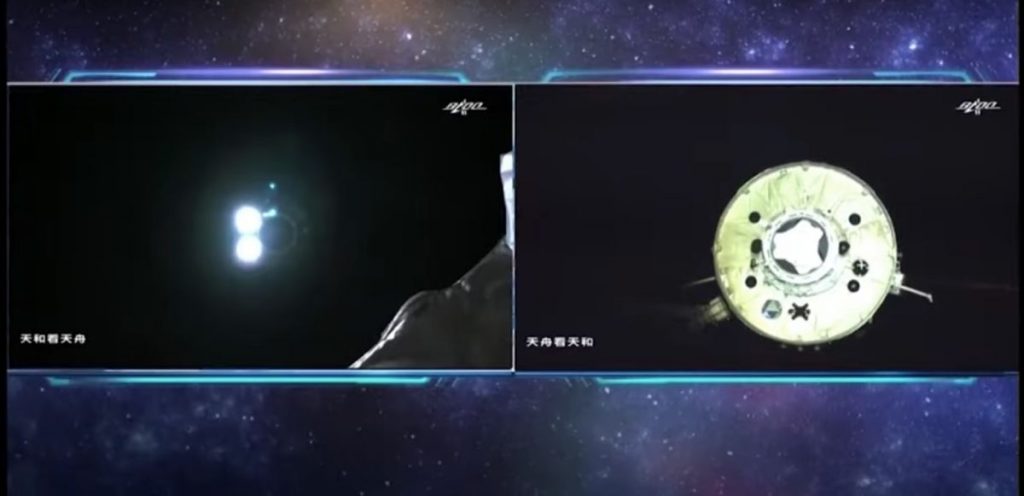Tianzhou 3 is no more.
The 35-foot-long (10.6 meters) cargo spacecraft was guided to a fiery demise in Earth’s atmosphere at 11:31 p.m. EDT on Tuesday (July 26; 0331 GMT and 11:31 a.m. Beijing time on July 27), the China Manned Space Agency (CMSA) announced.
“Most of the spacecraft’s components have been ablated and destroyed, and a small amount of debris has fallen into the predetermined safe waters of the South Pacific,” CMSA officials said in a statement today (opens in new tab) (July 27). (Translation provided by Google.)
Related: The biggest spacecraft to fall uncontrolled from space
The robotic Tianzhou 3 launched to Earth orbit on Sept. 20, 2021, delivering about 6 tons of supplies to Tianhe, the core module of China’s Tiangong space station, which is still under construction. The freighter undocked from Tianhe on July 17, opening a port for the Wentian module, which arrived a week later. (A third module, called Mengtian, is expected to launch to Tiangong this fall, completing the space station’s assembly.)
Wentian launched atop a Long March 5B rocket, whose core stage reached orbit along with the module. That core stage is headed back to Earth, but — unlike Tianzhou 3 — in an uncontrolled fashion; atmospheric drag is expected to bring it down sometime this weekend, experts say.
The rocket body’s uncontrolled reentry is no surprise; this outcome is built into the design of the Long March 5B, which has now launched three orbital missions to date. This is a departure from other rockets, whose core stages generally are ditched into the ocean, or over unpopulated stretches of terra firma, shortly after lifting off or land safely for future reuse (in the case of SpaceX’s Falcon 9 and Falcon Heavy vehicles).
NASA officials and others in the space community have criticized China for allowing such big pieces of space junk to fall unguided back to Earth, given the (albeit slim) chance that their surviving shards could harm people or damage infrastructure.
“It is clear that China is failing to meet responsible standards regarding their space debris,” NASA Administrator Bill Nelson said in a statement (opens in new tab) last year shortly before the core stage of the Long March 5B that launched the Tianhe module crashed back to Earth.
“It is critical that China and all spacefaring nations and commercial entities act responsibly and transparently in space to ensure the safety, stability, security and long-term sustainability of outer space activities,” he added.
Mike Wall is the author of “Out There (opens in new tab)” (Grand Central Publishing, 2018; illustrated by Karl Tate), a book about the search for alien life. Follow him on Twitter @michaeldwall (opens in new tab). Follow us on Twitter @Spacedotcom (opens in new tab) or on Facebook (opens in new tab).

